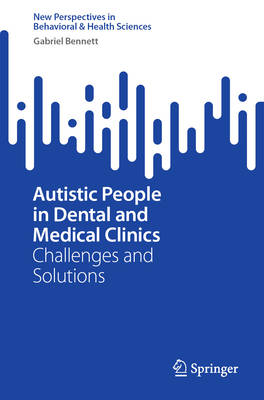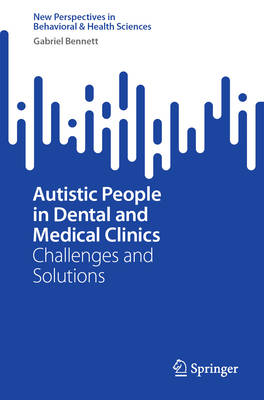
- Retrait gratuit dans votre magasin Club
- 7.000.000 titres dans notre catalogue
- Payer en toute sécurité
- Toujours un magasin près de chez vous
- Retrait gratuit dans votre magasin Club
- 7.000.0000 titres dans notre catalogue
- Payer en toute sécurité
- Toujours un magasin près de chez vous
Description
With 1 in 44 people now being diagnosed as autistic, there is a view that clinical environments should be "autistic friendly". However, despite this expectation, medical and dental students are rarely taught how they can make their future clinical workplaces comfortable for autistic patients. Similarly, allied health professional, such as occupational therapists and psychologists, are also not taught this information. Due to this lack of knowledge, each day countless autistics and their families are exposed to potentially stressful clinical situations that can jeopardise the delivery of effective treatment. To help mitigate this situation, this book will give university students as well as established healthcare professionals an understanding of how they can assist autistic patients in clinical settings.
This book is more than just providing strategies that aspiring and established healthcare professionals can use to make their clinical workplaces more accommodatingfor autistics and their families. It will also present a synopsis of the literature about the challenges and experiences that autistic patients have had in dental and medical settings. Such information can provide the reader with a greater understanding about what it is like to be autistic and receive medical and/or dental treatment. This synopsis will also illustrate the current gaps in our knowledge about this topic.
Spécifications
Parties prenantes
- Auteur(s) :
- Editeur:
Contenu
- Nombre de pages :
- 153
- Langue:
- Anglais
- Collection :
Caractéristiques
- EAN:
- 9789819923588
- Date de parution :
- 30-05-23
- Format:
- Livre broché
- Format numérique:
- Trade paperback (VS)
- Dimensions :
- 156 mm x 234 mm
- Poids :
- 254 g

Les avis
Nous publions uniquement les avis qui respectent les conditions requises. Consultez nos conditions pour les avis.






